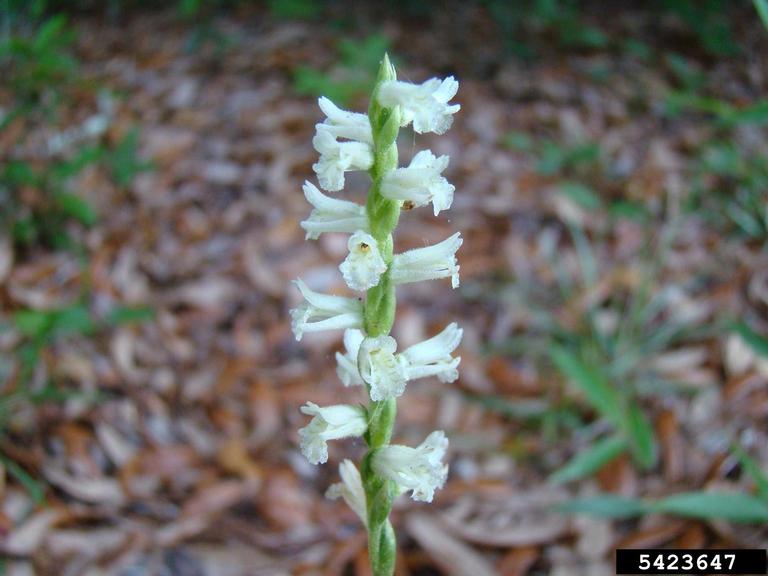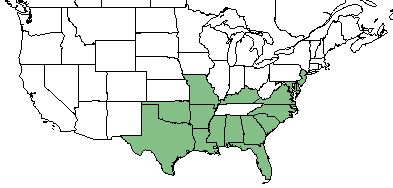Difference between revisions of "Spiranthes praecox"
(→Ecology) |
|||
| Line 41: | Line 41: | ||
<!--===Seed bank and germination===--> | <!--===Seed bank and germination===--> | ||
<!--===Fire ecology===--> <!--Fire tolerance, fire dependence, adaptive fire responses--> | <!--===Fire ecology===--> <!--Fire tolerance, fire dependence, adaptive fire responses--> | ||
| − | <!--===Pollination | + | <!--===Pollination and use by animals===--> |
| − | |||
<!--==Diseases and parasites==--> | <!--==Diseases and parasites==--> | ||
Revision as of 15:29, 23 June 2021
| Spiranthes praecox | |
|---|---|

| |
| Photo by Rebekah D. Wallace, University of Georgia, Bugwood.org hosted at Forestryimages.org | |
| Scientific classification | |
| Kingdom: | Plantae |
| Division: | Magnoliophyta - Flowering plants |
| Class: | Liliopsida - Moncots |
| Order: | Orchidales |
| Family: | Orchidaceae - Orchids |
| Genus: | Spiranthes |
| Species: | S. praecox |
| Binomial name | |
| Spiranthes praecox (Walter) S. Watson | |

| |
| Natural range of Spiranthes praecox from USDA NRCS Plants Database. | |
Common Name(s): grass-leaved ladies’-tresses, giant ladies’-tresses,[1] greenvein lady’s tresses[2]
Contents
Taxonomic Notes
Synonym(s): Ibidium praecox (Walter) House
Description
Spiranthes praecox is a monoecious perennial forb/herb.[2] It is also known to naturally hybridize with other orchids, like S. gracilis.[3]
Distribution
This species is endemic to the Southeastern Coastal Plain, being found from New Jersey, south to southern Florida, and westward to Texas.[1]
Ecology
Habitat
S. praecox is found in savannas, swamps, woodlands, meadows, pinelands, dunes, swales, and bogs.[1][4]
It is also found in disturbed like including vacant lots.[4]
Associated species: Tradescantia, Amorpha, and Spigelia.[5]
Phenology
S. praecox has been observed to flower from March through July[1] with peak inflorescence in April and May. A report of flowering in December also exists[6] and in New England, it is said to complete its bloom by the end of the second week of September.[3]
Conservation, cultivation, and restoration
Cultural use
Photo Gallery
References and notes
- ↑ 1.0 1.1 1.2 1.3 Weakley A. S.(2015). Flora of the Southern and Mid-Atlantic States. Chapel Hill, NC: University of North Carolina Herbarium.
- ↑ 2.0 2.1 USDA, NRCS. (2016). The PLANTS Database (http://plants.usda.gov, 10 January 2018). National Plant Data Team, Greensboro, NC 27401-4901 USA.
- ↑ 3.0 3.1 Ames O (1903) Natural hybrids in Spiranthes and Habenaria. Rhodora 5(59):261-264.
- ↑ 4.0 4.1 Academy of Natural Sciences of Drexel University accessed using Southeastern Regional Network of Expertise and Collections (SERNEC) data portal. URL: http://sernecportal.org/portal/collections/index.php Last accessed: June 2021. Collectors: M.L Fernald and H. B. Meredith. States and Counties: Virginia: Norfolk City, Princess Anne, and Virginia Beach City.
- ↑ Louisiana State University, Shirley C. Tucker Herbarium accessed using Southeastern Regional Network of Expertise and Collections (SERNEC) data portal. URL: http://sernecportal.org/portal/collections/index.php Last accessed: June 2021. Collectors: Charles M. Allen. States and Counties: Louisiana: Saint Helena.
- ↑ Nelson, G. PanFlora: Plant data for the eastern United States with emphasis on the Southeastern Coastal Plains, Florida, and the Florida Panhandle. www.gilnelson.com/PanFlora/ Accessed: 16 JAN 2018